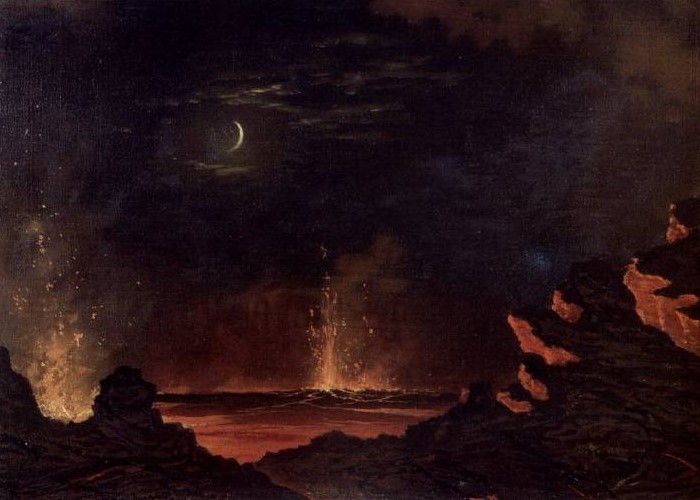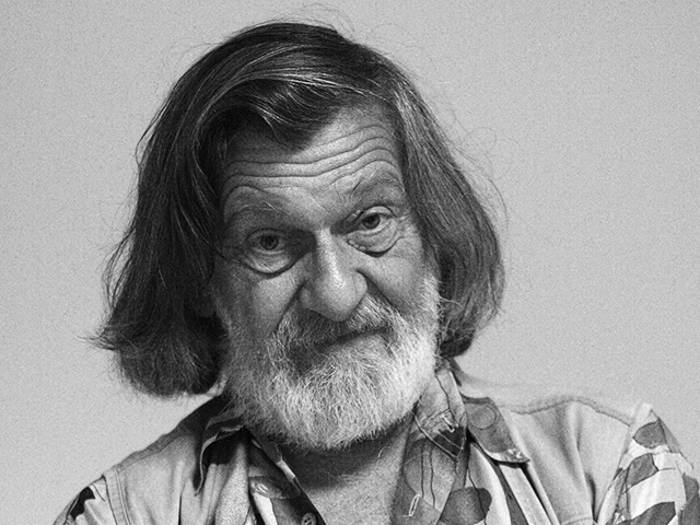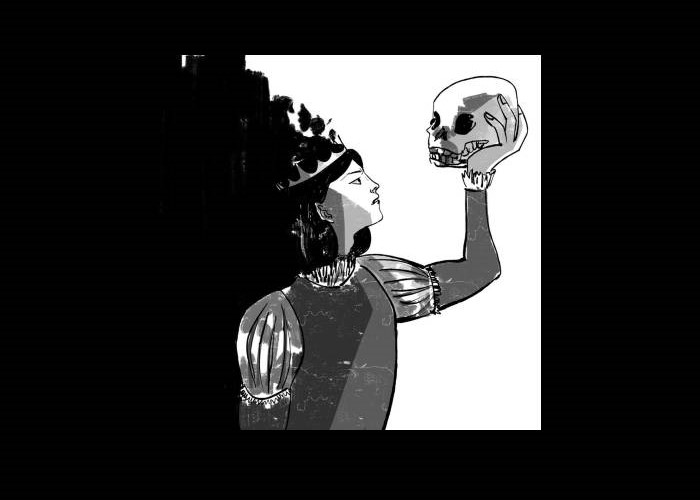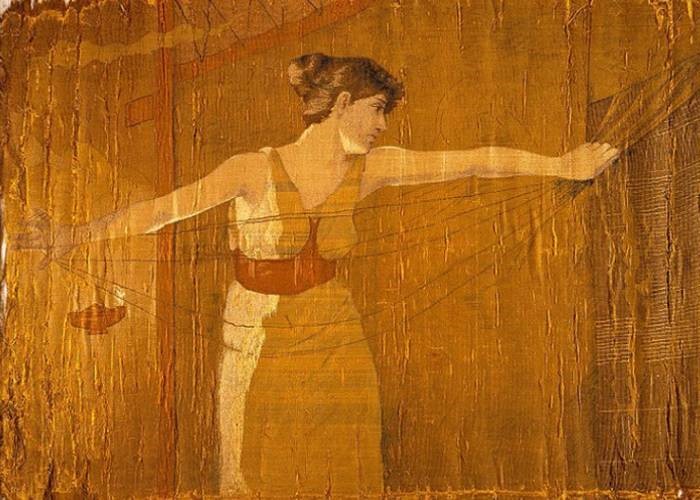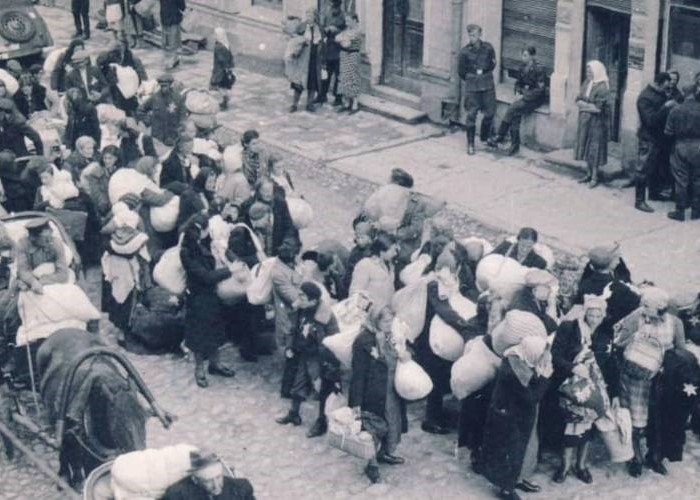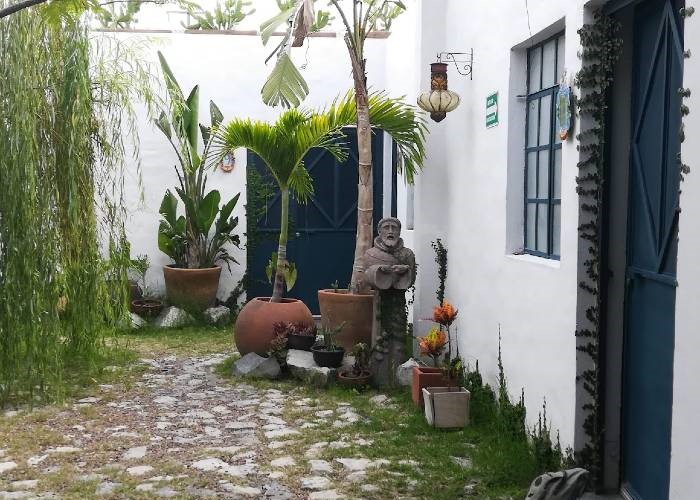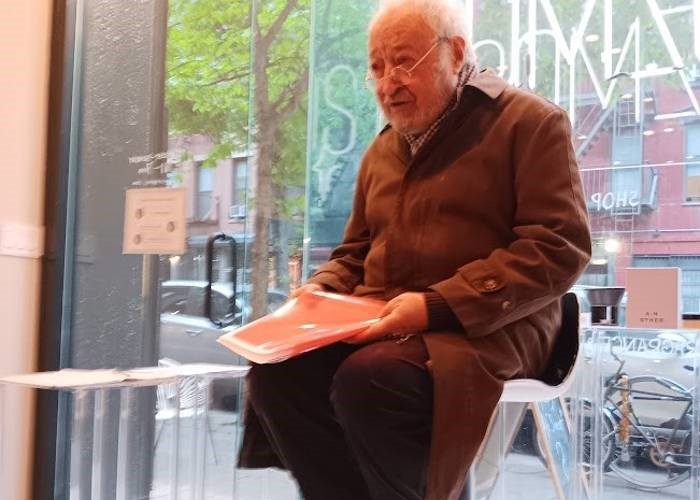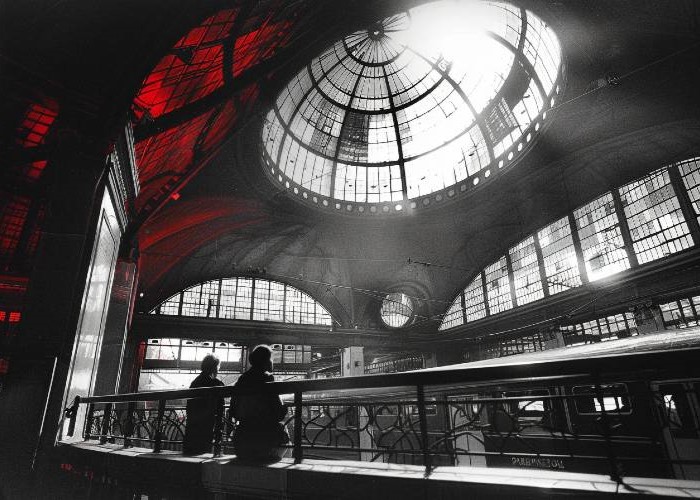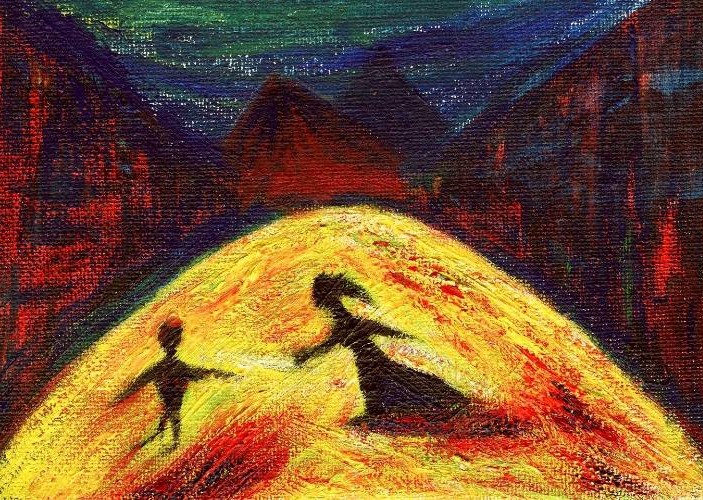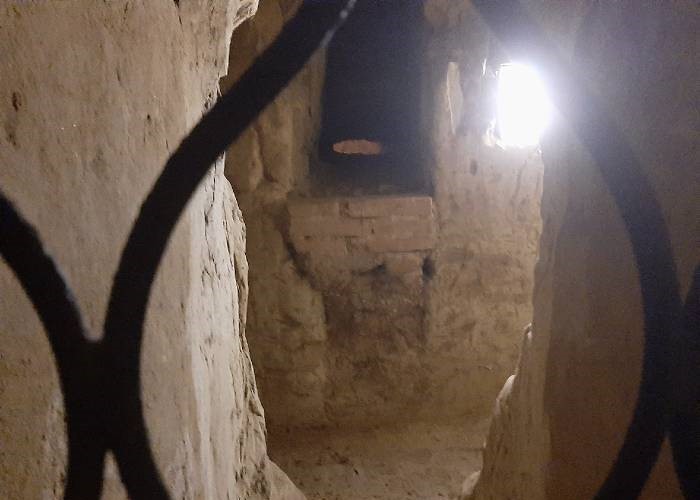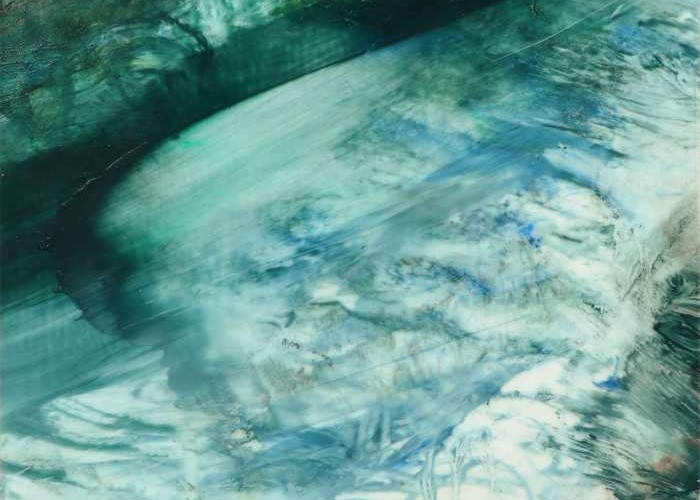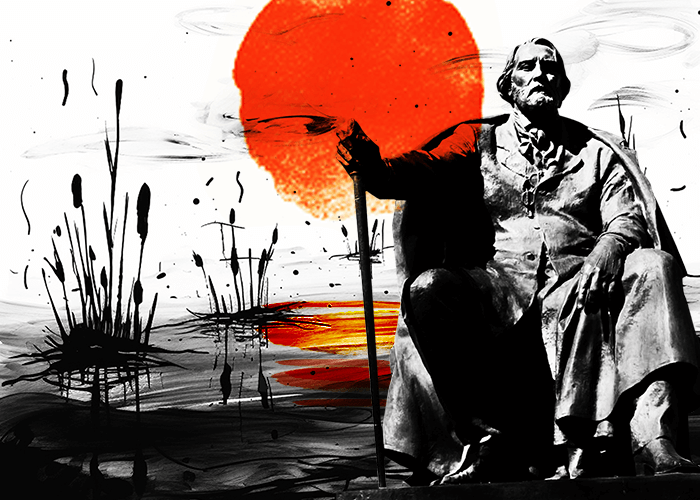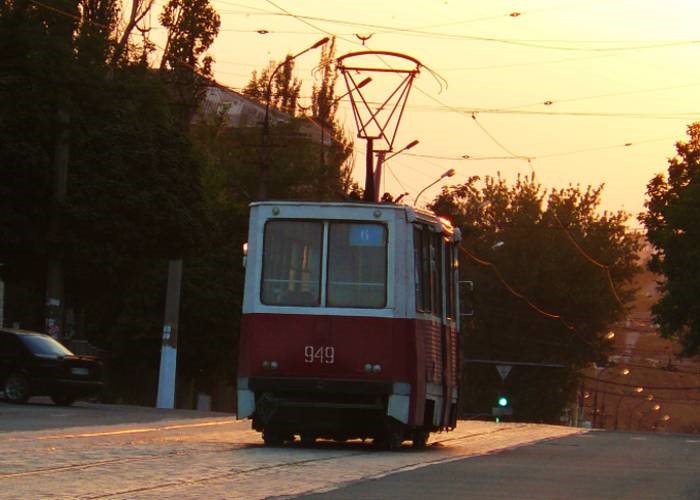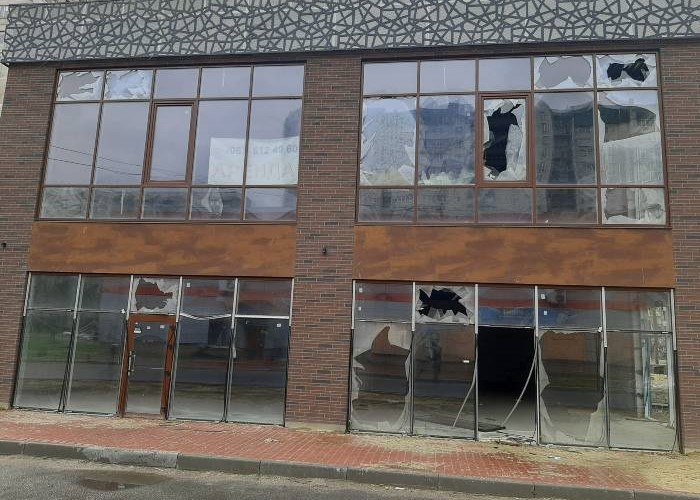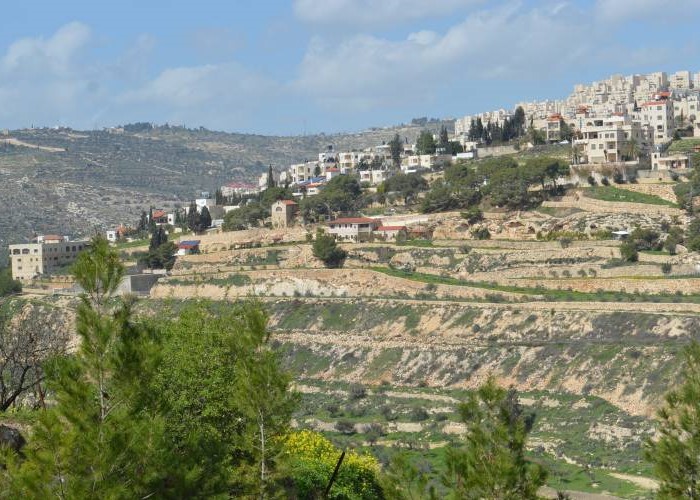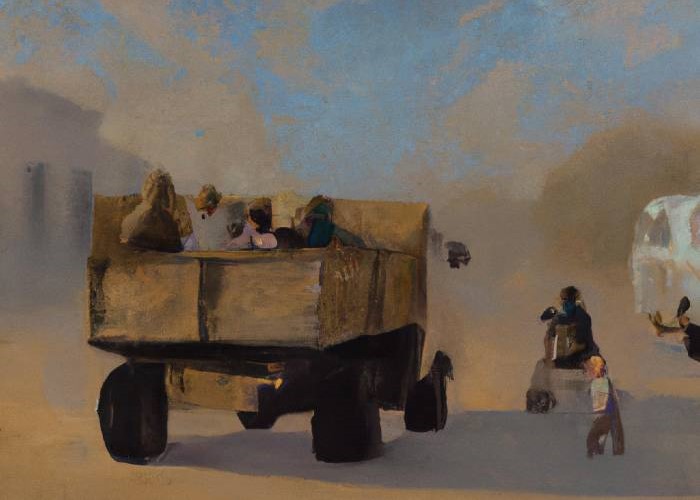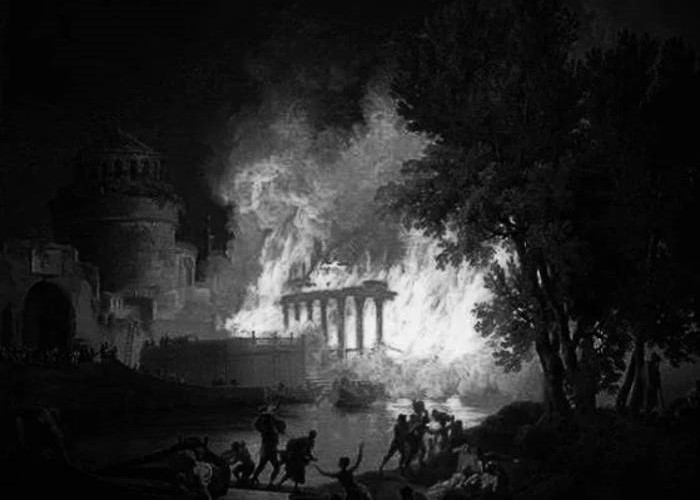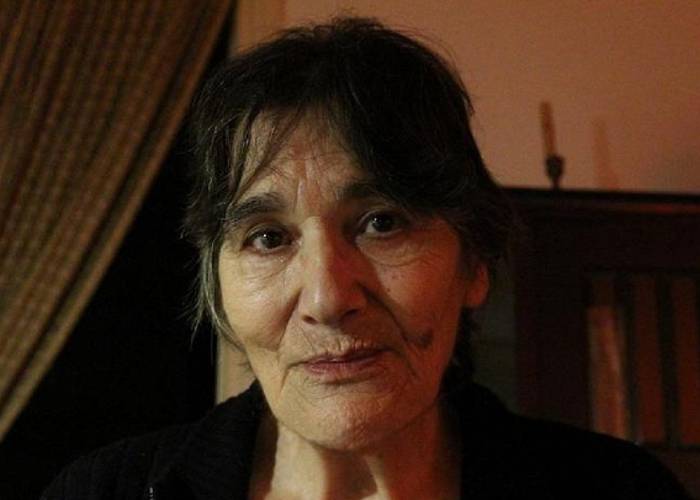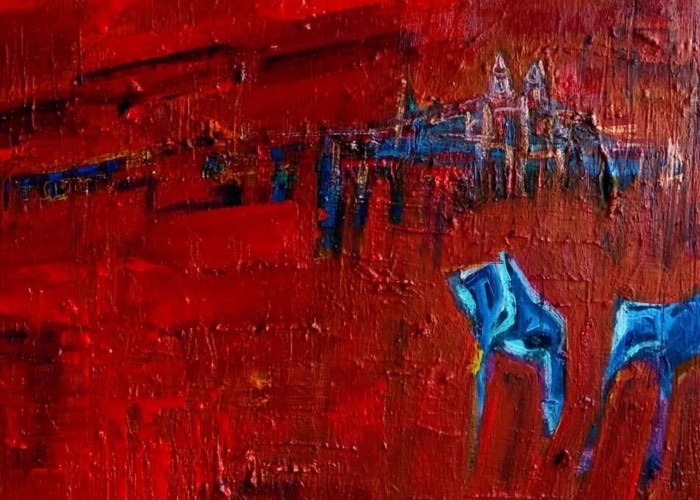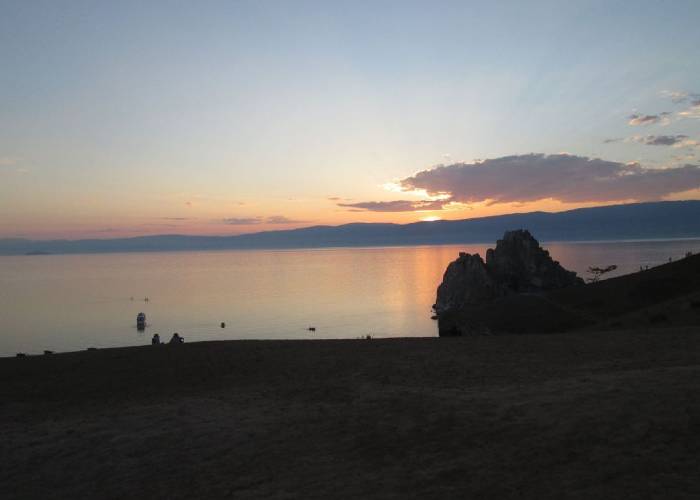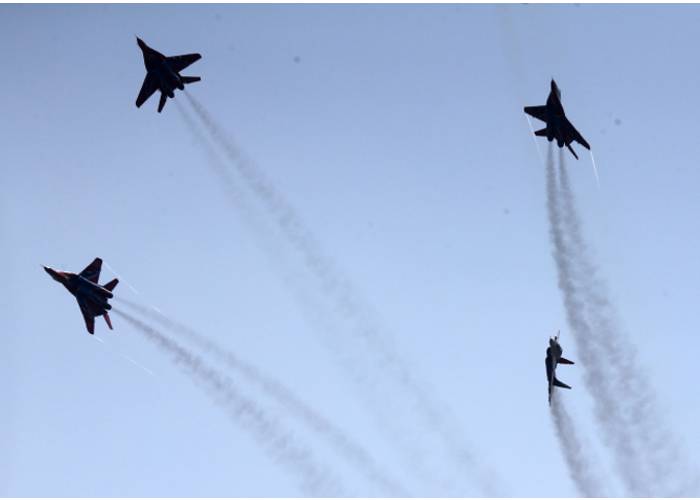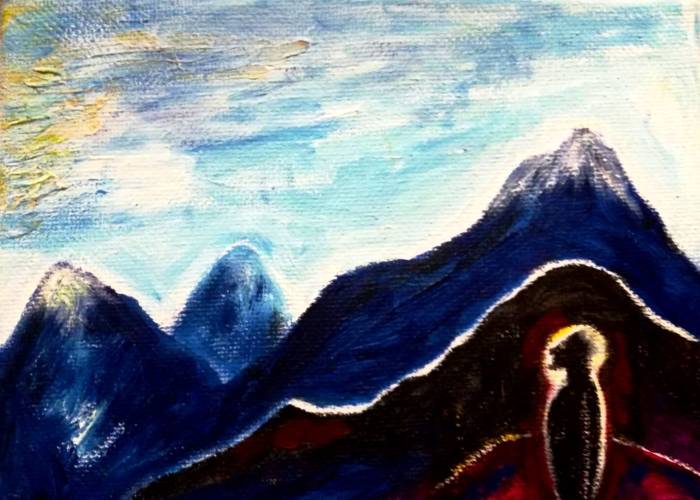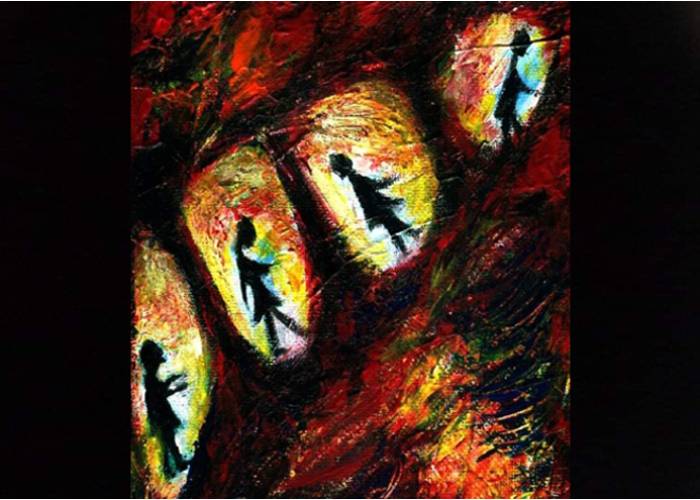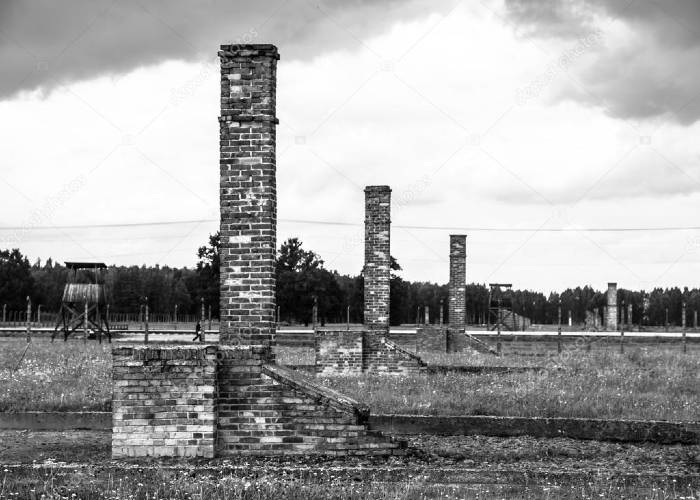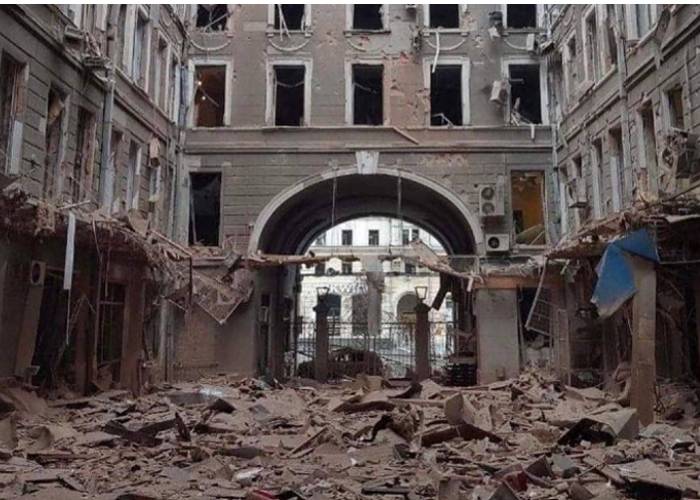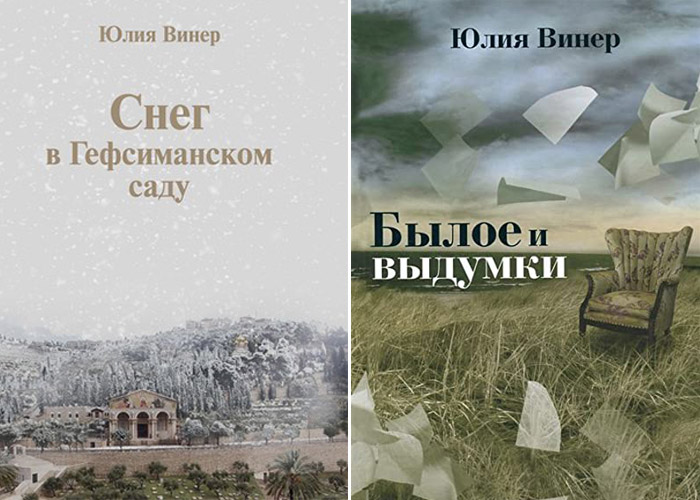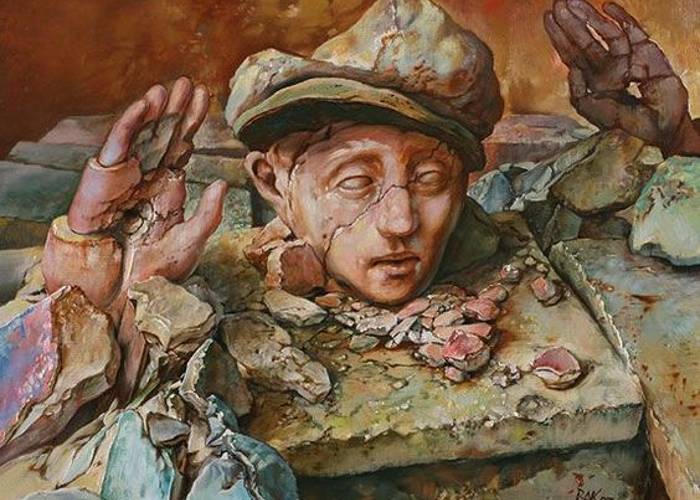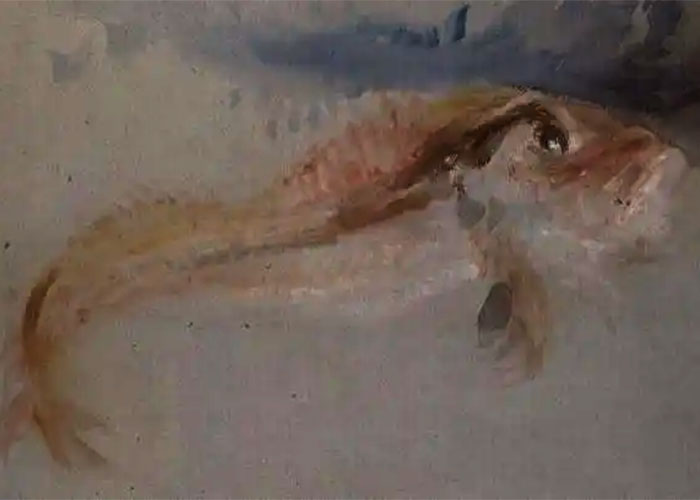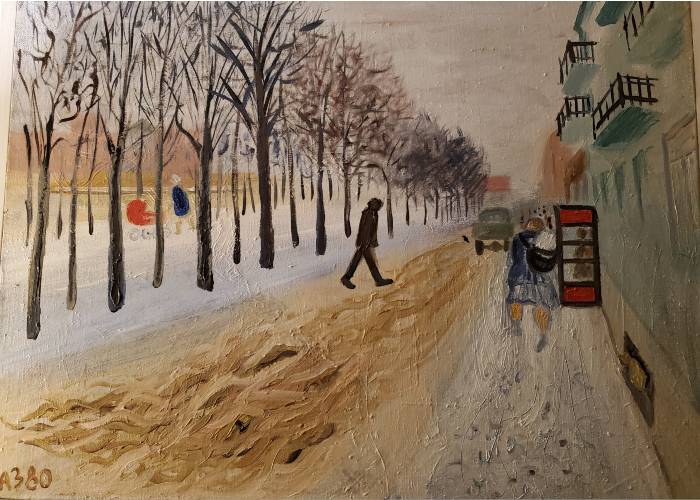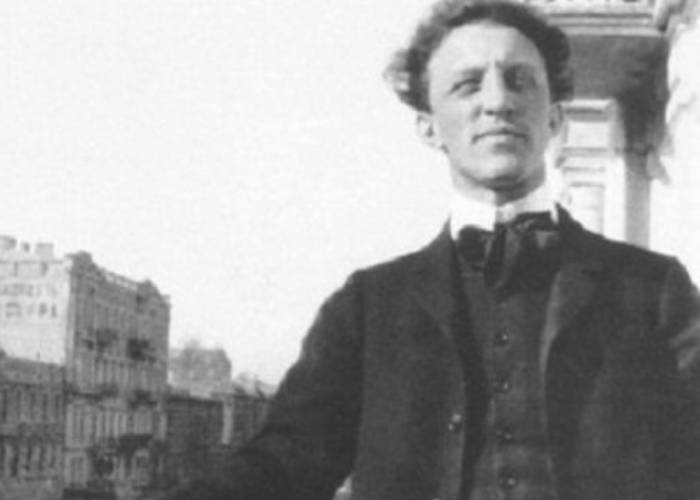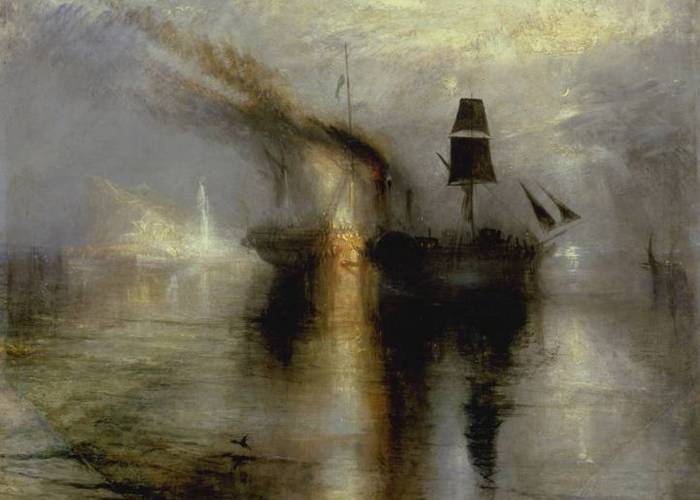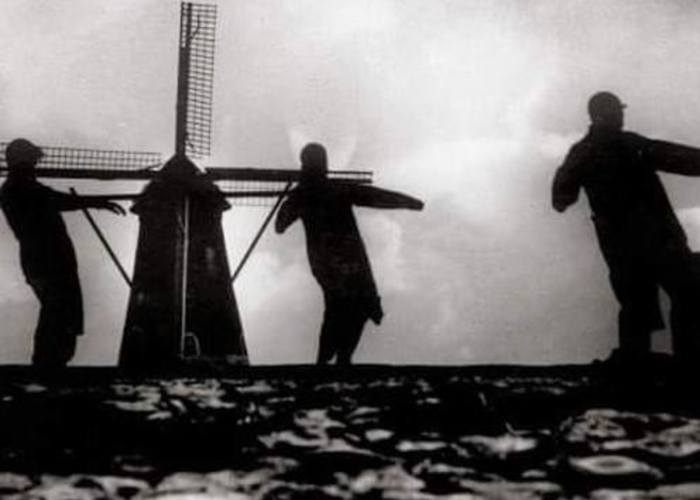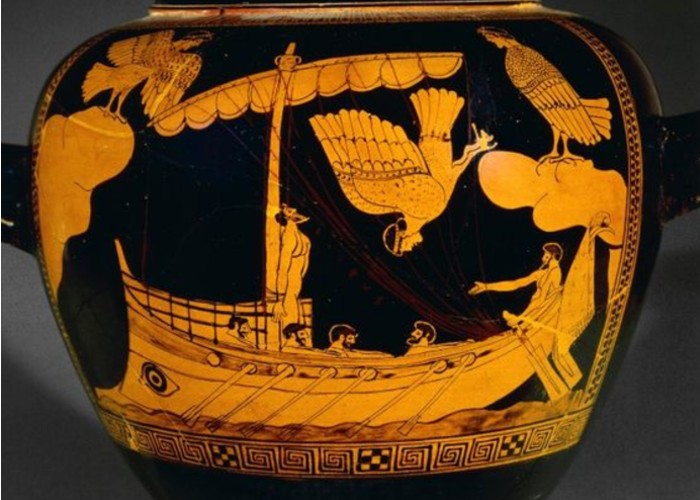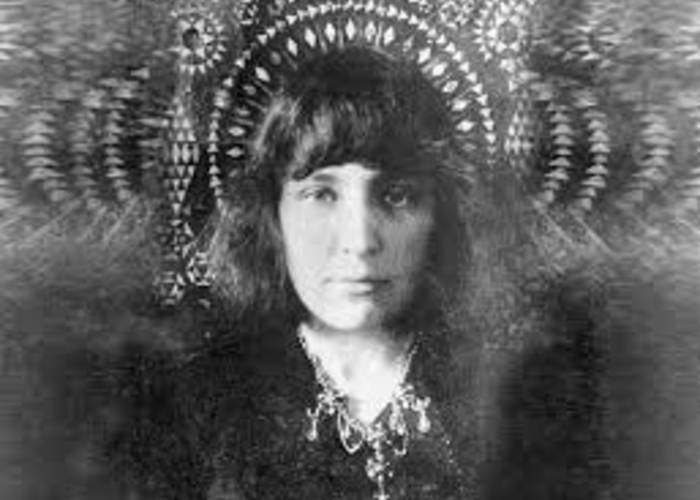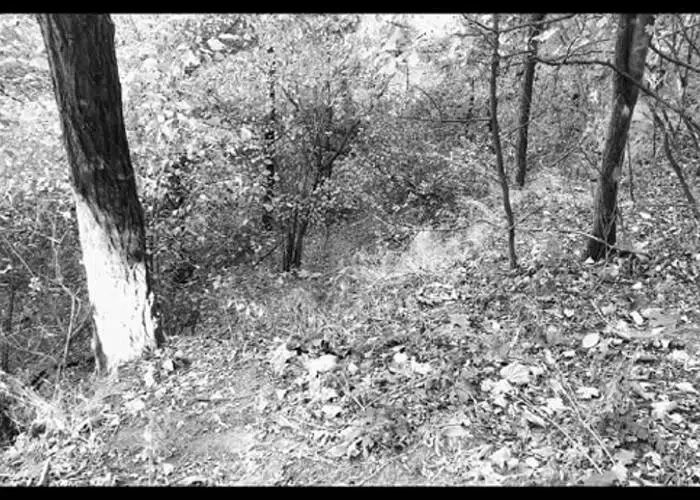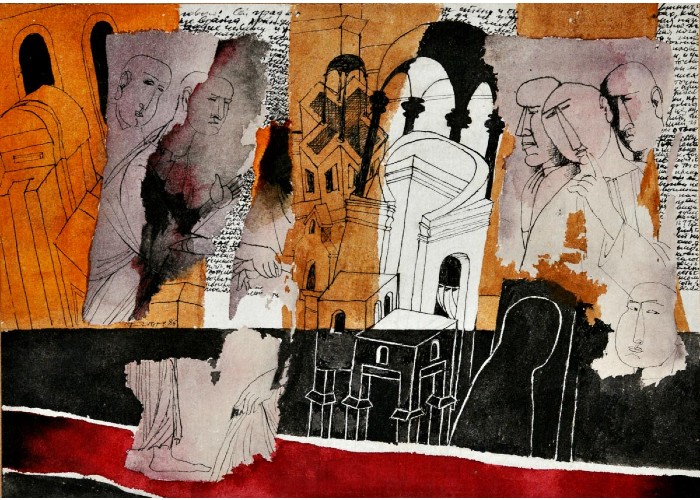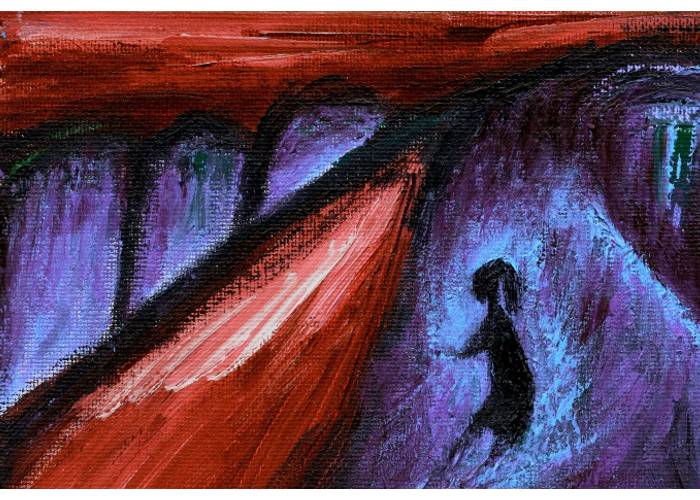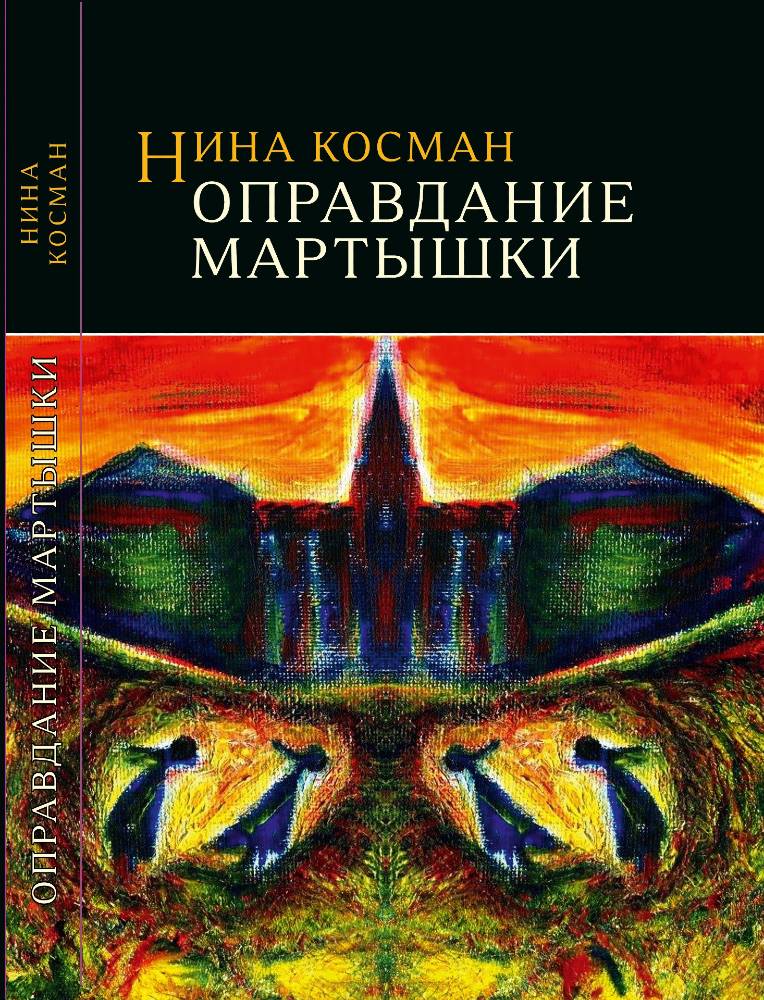* * *
In the city of Delphi,
where bloody games
take the place of prophecies
and of peaceful games,
shadows of priests and Pythias*,
and of those who, for prophecies,
paid only what they could—
a slave, a rooster, a horse, a coin;
in the city of Delphi
life is like an old net,
only tourists and guides get caught in it.
And I, too, am caught in this tattered net.
I can’t untangle it,
can’t figure out where am I,
where is the Pythia,
where’s the priest,
where’s the rooster,
where’s the horse,
where’s the coin,
and whose voice is whispering to me:
— Stay,
you yourself are the Pythia.
As for the coin and the horse,
forget them.
~~~
* Pythia (or Oracle of Delphi)—priestess dedicated to Apollo
* * *
CONVERSATION WITH THE EARTH
I asked the Earth:
“Are you ready?”
and the Earth thought
I was asking if it was ready to die.
So I hurriedly said, “Sorry,
that’s not what I meant at all.
I simply asked,
“Are you ready?”
And the Earth replied,
“I’m ready, but it is not I
— no, no, not I —
who is going to die
but you—you—you.
I will be merely transformed
and no longer fit to live on,
and all the creatures that live
on me—and off of mе—will perish,
including you—you—you.”
Then the Earth asked me:
“Are you ready?”
And I said no, I’m not ready to die.
And the Earth said,
“You should hurry, it’s time,”
and I said, “Forgive us,
for we know not what we do to you.”
And the Earth whispered,
“Goodbye.”
* * *
WORDS
Words, you lay in my hand like pebbles,
round and peaceful.
But sounds of war came from far away,
and the sea took away the pebbles,
and now my hand is empty of words.
* * *
CIRCE TO ODYSSEUS
“What was it,” she said,
“the shadow that crossed your face,
and that gesture that looked like a farewell wave?
Remember, I’m not her,
not Penelope, remember this,
and even though you’re Odysseus,
there’s no need for gestures on my unhappy island;
here everything is clear without them.
We see into each other’s souls without words or waves,
and if you wish to sail further,
you can do so without shadows,
unnecessary rituals, words, or flowers
that grow on a far-away continent
where summer is winter and winter is spring.”
* * *
WORDS FOR DANTON
If you haven’t learned how to write the word “execution”
before you learn how to write the word “pardon”,
my friend Danton,
you ought to become a watchman,
not a revolutionary;
and if you enter a sanctuary like a beggar
with a severed head,
God is your judge,
my friend Danton.
That is why he is a god, you know,
so as not to give alms to every man entering
without a head on his neck.
Fear not, my friend Danton,
that is why you are a revolutionary.
And to rid your heart and your hand of fear,
temper your soul, learn to write the word “execution”,
and right after it, the word “block”,
my friend Danton.
You are neither a boy,
nor a coward,
my friend Danton,
you know how to swim in blood
like in the sea.
You, who drowned in it.
* * *
I, WHO WAS NOT KILLED IN ANY WAR
And I, who was not killed in any war,
who did not march with an army of any motherland,
who did not hide in a trench because I took no sides,
since I had escaped from the motherland’s steel clutches
(this motherland or that, makes no difference anymore,
“motherland” being a figment of the imagination of the crowd,
and the crowd, by definition, is incapable of thinking,
it takes on faith catchwords handed down by its king);
since I escaped all rulers at an early age, I am free
from the crowd’s narrow-browed definition of every word,
I am beholden to slogans neither of the right nor of the left,
both seem tedious to me, like an undercooked oatmeal,
which the collective mind transforms into the best of viands.
I repeat: I was not killed in any war because, like kolobok*,
I escaped from the old man, the bear, and the wolf,
and there is no one to tell me what to think.
I think for myself: it is no small feat, things being what they are.
I am free to walk in no one’s woods, because I belong to no one,
except myself.
*Kolobok – a round bun, a character in Russian fairy tales, similar to the Gingerbread man
* * *
I HEAR A RATTLE OF BONES
I hear a rattle of bones – or are they sticks?
What is this rattle, this distant noise
or is something wrong with my hearing?
It’s nothing, they tell me, nothing at all,
It’s just a train passing, a train full of heavy furniture.
If it’s furniture, then why does it have this smell,
like the stench of human flesh,
rotten flesh, and the sound of bones,
bone hitting bone, like a soundtrack
of a bad horror movie shown on Halloween.
So who does the bell toll for this time, tell me?
– Excuse me, ma’am, I don’t hear any bell.
All I hear is three silver bells tinkling sweetly.
– Listen better, young fool, for it tolls for thee.
– I don’t know what you mean by “thee”, mа’am.
I don’t hear any bell, or a rattle of, as you call them, “bones”.
– Listen better, fool, for it tolls for thee.
– Don’t scare me, ma’am, I’m a good boy.
I go to bed at nine, and I sleep very well.
Your strange words are giving me nightmares.
I don’t want scary stories about the past, ma’am.
I don’t want to hear the rattle, as you say, of bones.
I want to believe in a kind God who gives me his blessing,
and if you wish to go on about the rattle of bones, ma’am,
can’t you go somewhere else, somewhere far away?
– I hear a rattle of …. —
– Just shut up now! It’s a train full of furniture, as I said.
Go away now! Just go far far away!
* * *
See how slowly the seagulls circle
their wings flapping sleepily
over the red clay by the lake,
the same clay from which the Greeks
molded their narrow vases
with patterns from lives of gods
(those who own the secret of death,
turned out to be subject to it) –
gods made out of red clay
at the lake of sleepily circling birds.


